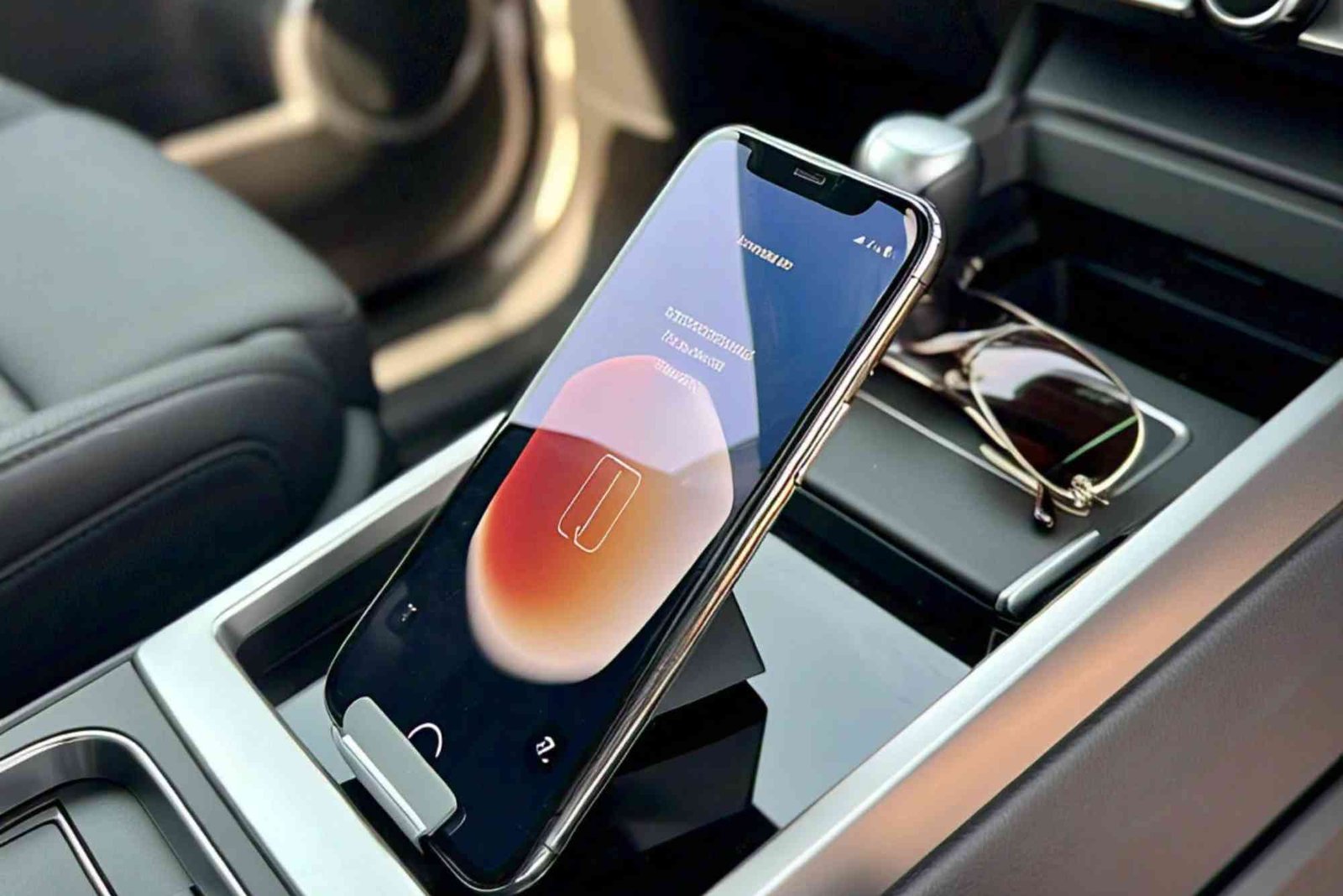Mobile auto programming refers to the advanced practice of configuring and updating a vehicle’s electronic systems directly at the location of the vehicle. Unlike traditional methods where a vehicle needs to be transported to a repair shop, mobile auto programming uses specialized equipment and software to perform necessary tasks on-site.
This practice encompasses various programming activities such as reprogramming engine control units (ECUs), programming keys, and updating vehicle software. By employing mobile auto programming, vehicle owners and repair professionals can address issues promptly and efficiently, minimizing the inconvenience and cost associated with traditional repair methods.
Importance and Benefits
The significance of mobile auto programming lies in its ability to streamline vehicle maintenance and repair processes. One of the primary benefits is the convenience it offers, as technicians can perform essential programming tasks without the need for the vehicle to be towed to a workshop.
This on-site service not only saves time but also reduces the labor and transportation costs associated with traditional repair methods. Additionally, mobile auto programming contributes to enhanced vehicle performance by allowing for timely updates and customization of electronic systems. As technology advances, the capability to address vehicle issues swiftly and accurately becomes increasingly valuable.
How Mobile Auto Programming Works
Basic Principles of Auto Programming
Mobile auto programming operates through the connection of a diagnostic tool or programmer to the vehicle’s onboard diagnostic (OBD) port. This connection establishes a communication link between the vehicle’s electronic control units (ECUs) and the programming tool.
The programming tool, equipped with specific software, interacts with the vehicle’s systems to read and write data. This process involves updating firmware, modifying settings, or reprogramming key functions. The programming languages and protocols used are tailored to the vehicle’s make and model, ensuring that the programming tasks are performed accurately.
Types of Mobile Auto Programming
Mobile auto programming encompasses several types, each catering to different aspects of vehicle maintenance. OEM (Original Equipment Manufacturer) programming involves the use of tools and software provided by the vehicle manufacturer. This method ensures high compatibility and reliability, as it adheres to the manufacturer’s specifications. On the other hand, aftermarket programming employs third-party tools and solutions that may offer cost-effective alternatives and additional features. These tools, while often versatile, may not always match the precision of OEM solutions. Common scenarios in mobile auto programming include programming new keys, updating ECU software, and troubleshooting system faults.
Benefits of Mobile Auto Programming
One of the most notable advantages of mobile auto programming is the convenience it provides. Technicians can perform programming tasks at the vehicle’s location, eliminating the need for transportation and reducing overall repair time.
This immediate service is particularly beneficial for vehicle owners with busy schedules or those who experience breakdowns in remote areas. By addressing issues on-site, mobile auto programming enhances operational efficiency, ensuring that vehicles are quickly returned to service.
Enhanced Vehicle Performance
Mobile auto programming enables vehicle owners to benefit from customized and optimized performance. Technicians can update software, recalibrate settings, and enhance various system features to meet specific needs. For example, performance tuning can be adjusted to improve engine efficiency or adjust transmission behavior. This capability ensures that vehicles operate at their best, enhancing overall driving experience and efficiency.
Common Applications of Mobile Auto Programming

Vehicle key programming is a fundamental application of mobile auto programming. This process involves programming remote key fobs and transponder keys to ensure they function correctly with the vehicle’s immobilizer system. Remote key fob programming allows for the addition or replacement of keyless entry systems, while transponder key programming involves syncing the key’s embedded chip with the vehicle’s security system. Both applications are essential for maintaining vehicle access and security.
ECU (Engine Control Unit) Programming
ECU programming is another critical application in mobile auto programming. This involves updating or reprogramming the vehicle’s engine control unit to address issues, improve performance, or integrate new features. Technicians can perform diagnostics to identify any faults within the ECU and apply necessary updates to ensure optimal engine operation. ECU programming is crucial for maintaining vehicle efficiency and addressing performance-related issues.
Vehicle Immobilizer Programming
The immobilizer system is a key security feature in modern vehicles, designed to prevent unauthorized access. Mobile auto programming enables the reprogramming or replacement of faulty immobilizer systems to ensure that the vehicle’s anti-theft measures function correctly. By addressing issues with the immobilizer system, technicians can enhance vehicle security and prevent potential theft.
Choosing the Right Mobile Auto Programming Service
Factors to Consider
When selecting a mobile auto programming service, several factors should be considered to ensure quality and reliability. It is essential to verify the qualifications and certifications of the service provider. Technicians should possess the necessary expertise and training to handle various programming tasks effectively. Additionally, evaluating the equipment and technology used by the service provider is crucial. Advanced tools and up-to-date software contribute to the accuracy and efficiency of the programming process.
Questions to Ask a Service Provider
To make an informed decision, it is beneficial to ask specific questions when choosing a service provider. Inquire about the technician’s experience and expertise in mobile auto programming, as experienced professionals are more likely to deliver reliable results. Additionally, ask about the warranty and support provided for the programming services. A reputable provider should offer guarantees on their work and be available to address any issues that may arise.
DIY vs. Professional Mobile Auto Programming
Pros and Cons of DIY Programming
DIY mobile auto programming is an option for individuals who prefer to handle programming tasks themselves. While this approach can be cost-effective and provide a sense of accomplishment, it comes with certain challenges. DIY programming requires specialized tools and software, which can be expensive and require a steep learning curve. Moreover, incorrect programming or use of incompatible tools can lead to system malfunctions or damage. Without professional guidance, there is a risk of errors that may affect the vehicle’s performance or safety.
Advantages of Professional Services
Professional mobile auto programming services offer several advantages over DIY methods. Professionals have access to advanced tools and equipment, ensuring accurate and reliable programming. Their expertise and experience contribute to effective problem-solving and optimal results. Additionally, professional services often come with warranties and support, providing peace of mind and addressing any potential issues that may arise after the programming is completed.
Challenges and Limitations of Mobile Auto Programming

Mobile auto programming can present various technical difficulties. Compatibility issues may arise, particularly when dealing with different vehicle makes and models or using third-party tools. Ensuring that the programming tools and software are compatible with the vehicle’s systems is crucial for successful programming. Additionally, keeping up with software updates and upgrades is necessary to maintain compatibility with evolving vehicle technologies.
Legal and Safety Considerations
Legal and safety considerations are essential aspects of mobile auto programming. Compliance with local regulations and industry standards is necessary to avoid legal issues and ensure that programming practices are conducted safely. Secure programming practices should be in place to prevent unauthorized access and protect the integrity of the vehicle’s systems.
Future Trends in Mobile Auto Programming
Technological Advancements
The future of mobile auto programming is likely to be shaped by ongoing technological advancements. Emerging tools and software will enhance the capabilities of mobile programming, offering new features and efficiencies. Innovations in vehicle technology will also drive the evolution of programming methods, requiring technicians to adapt to new systems and functionalities.
Predictions and Industry Developments
As mobile auto programming becomes more prevalent, the demand for mobile services is expected to grow. This trend will likely result in the expansion of mobile programming solutions and the development of new technologies to support various vehicle systems. The automotive repair industry will continue to be influenced by these advancements, leading to increased flexibility and accessibility in vehicle maintenance and repair.
Mobile auto programming offers significant advantages, including convenience, efficiency, and enhanced vehicle performance. It encompasses a range of applications, from key programming to ECU updates, and can be performed by both DIY enthusiasts and professional technicians. The choice between DIY and professional services depends on factors such as accuracy, reliability, and available resources.










